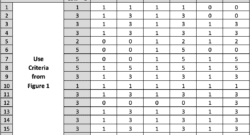Personal: Project Management Basics
Master the fundamentals of project management methodologies, processes, and best practices. Learn essential PM concepts, tools, and techniques for effective planning, execution, and delivery.
How to prepare for the PMI-RMP Exam
The PMI-RMP® credential certifies that Risk Management Professionals have the knowledge to apply project risk management principles, tools, and techniques. This article will assist you in preparing f...
Why you should get certified as a PMI-RMP
The PMI-RMP® certification signifies that an individual has the skills and knowledge to effectively manage risk in organizations. Holding this credential can help advance your career, improve your ear...
Five Risk Management Best Practices for Project Managers
Effective risk management increases the likelihood of project success. This article outlines five best practices for project managers to consider when creating and implementing a risk management plan,...
What is Agile Project Management?
Agile Project Management is a powerful approach that enables teams to deliver value to customers quickly and efficiently in an ever-changing world. At its core, Agile is about embracing flexibility, a...
Back to Basics: What is the Difference between Process Groups and Phases?
Many project managers struggle to understand the concept of process groups and often confuse them with project phases. This article explores the differences between the two, explaining how process gro...
Display the Project Summary Task
Background Are you displaying the Project Summary Task in every one of your projects in Microsoft Project? If not, I strongly recommend that you do this. What is the Project Summary Task? Often nickna...
What’s Missing From Project for the web
While Project for the web offers a middle ground between Planner and Project Online, some critical features are still missing. This article identifies the most important missing features, such as fiel...
Is Schedule Risk Analysis Worth It?
Introduction Many ‘Request for Proposal’ (RFP) documents require that a Schedule Risk Analysis (SRA) must be performed on the submission. Performing an SRA is also promoted as a ‘Best Practice’ by mos...
How to Quickly Calculate Your Project’s Risks for Success
Assessing Risk Countless studies over the last four decades point to similar findings: Approximately 50% of projects you undertake will be late and/or over budget, and approximately 25% will be cancel...










